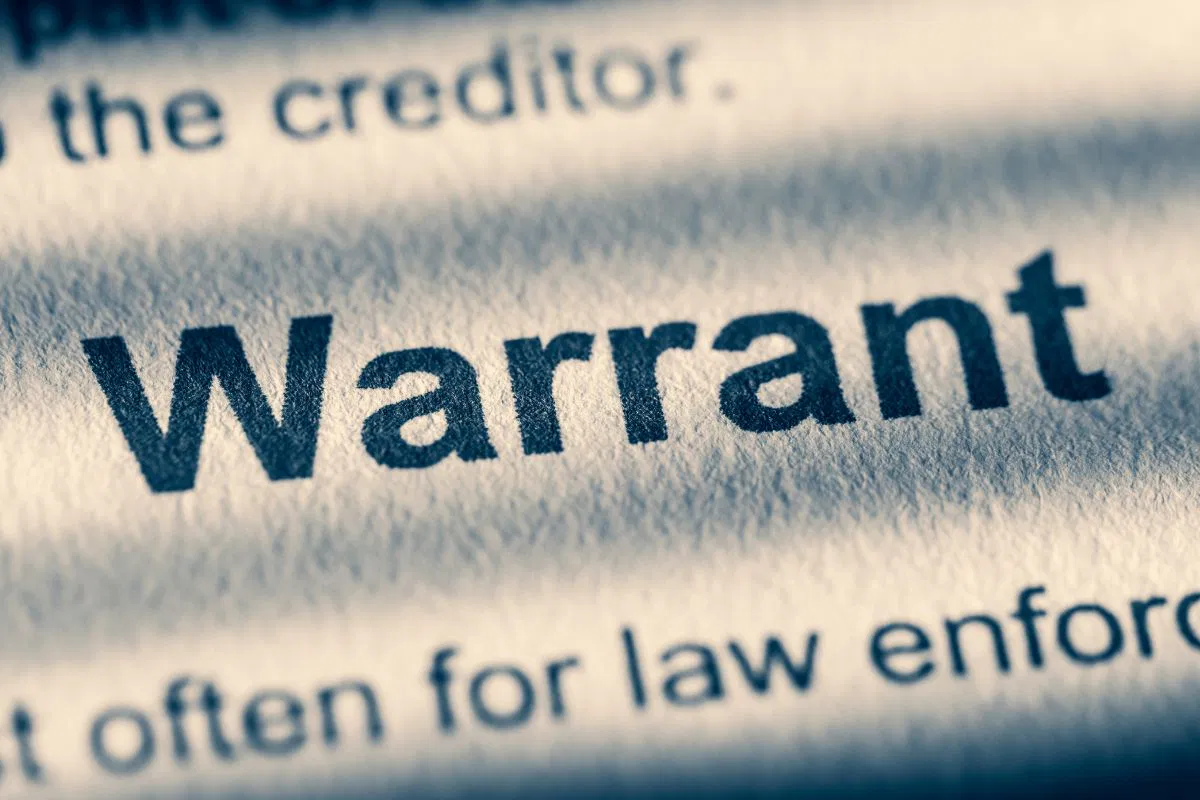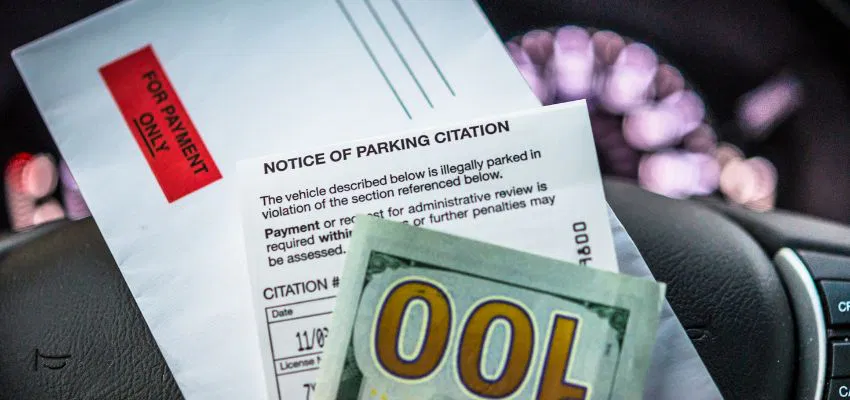Can a Capias Warrant Send You to Jail?

Published December 05, 2023
Did you know that a capias warrant is a powerful tool used for arrest? Once issued, your freedom is at stake. But here’s the thing – not all guarantee prison time. Some simply require you to face the judge and explain your actions. However, there are instances where incarceration becomes a chilling reality.
Is it possible to break free from the grasp of jail? The answer remains uncertain. To navigate the dangerous realm of a capias warrant, one must first grasp its true essence and the repercussions it entails. Prepare yourself for an enthralling journey that lies ahead.
What Is A Capias?
If you’re curious about capias meaning, it refers to a warrant issued by the court, empowering the police to apprehend you and ensure your appearance on the designated court date or fulfilling your legal responsibilities.
In Latin, ” capias ” means “to seize.” It’s important to know that this warrant is only for arresting one person. It cannot be used to seize properties or conduct searches to gather evidence. Furthermore, remember that when someone is apprehended through a capias warrant. Usually, they’re unable to get bail. This means they cannot be released from jail. If such a scenario happens, you have no other option but to consider jail calling services.

When Is A Capias Warrant Issued?
Several instances can prompt a judge to issue this type of warrant. The most common ones are:
-
When You Miss A Court Date
Whether you’re appearing in court for a traffic ticket or have been subpoenaed as a witness, missing a court date will give the court a reason to respond with a capias issued order.
-
When A Defendant Skips Bail
If you’re released on bail, that doesn’t mean you’re free to go. You must still attend court hearings and stay within the state until a verdict is reached. But if you decide to do neither of those, the court can issue a warrant against you.
-
If A Defendant Fails To Pay The Required Restitution
If you don’t pay a court-ordered penalty or restitution on time, the court will issue one against you. This is most common in child support cases.
Types Of Warrants
Since capias warrants are issued for various purposes, they come in several types, too:
Capias Pro Fine
A capias pro fine is a warrant issued by a court when a defendant fails to comply with the terms of a judgment. In criminal cases, this often happens when someone is fined. They fail to pay or make payment arrangements on time. The Latin term “capias pro fine” translates to “you shall take for the fine.”
In most cases, capias pro fine warrants recipients aren’t taken to jail. Instead, they’re brought before the court that ordered the fine or penalty. They must explain or show cause why they weren’t able to fulfill their obligation.
They must pay their obligation in full if they cannot present a valid reason. Otherwise, they must be detained in jail until such an obligation is settled.
For instance, you have an unpaid traffic ticket of $10,000. Since the amount is quite huge, the court allowed you to make installment payments. But you defaulted, and the court issued a warrant to bring you before them and explain your side. If you cannot convince them of a valid reason, pay the ticket. If you can’t raise the necessary amount, you’ll have to spend time in jail until the matter is resolved.

Alias Capias Warrant
In a nutshell, this warrant is issued when a defendant misses a court date for a felony. This usually happens when the defendant is out on bail.
Defendants facing a felony trial are usually informed of when the next court date will be. If they don’t show up as scheduled, the court will issue an alias capias warrant to arrest them. In most cases, the defendant must stay in jail until the next court date. During this, they’ll have to explain before the judge why they couldn’t attend the previous hearing.
The judge could reinstate or issue another bond if their reason is valid. The judge will send them to jail if their actions were intentional. The bond will be canceled in this case.
Civil Capias Warrant
A civil capias warrant is an arrest order issued by a court in civil cases, distinct from criminal cases. Typically, it’s given when someone doesn’t follow a court order. It can also be given when someone doesn’t show up for a civil case. This type of warrant is often called a “body attachment” or a “bench warrant for civil contempt,” with the specific terminology varying across jurisdictions.
When the court orders someone to pay a certain amount of money, known as a judgment, and they refuse to comply, the court can issue a warrant. It compels individuals to appear in court and explain their non-compliance.
This type of warrant does not punish individuals for crimes. Instead, it ensures compliance with court orders or guarantees court appearances.
What Are The Potential Consequences?
When you’ve been arrested through a capias warrant, the arresting officer should bring you directly to:
- the court that issued the warrant
- the clerk of court (if the court is not in session)
- the correctional center (if the court clerk’s office is closed)
In most cases, the arresting officer cannot take a defendant directly to jail. They must bring them before a judge first. If you’re wondering how long do you sit in jail for a capias warrant, the duration varies based on the specific case.
If the arrest occurs on a weekend or holiday, the court is closed. The clerk’s office is also likely closed during this time. So, the defendant must remain in jail until the next court date.
As stated many times above, if your case requires paying exemplary or civil damages, you must pay for it. Otherwise, you’ll have to spend some time in jail. If you lack money, a lawyer can convert jail time to credits. These credits can reduce your punishment.
If you’re out on bail, the judge deems you fled, you’ll go to prison. You’ll wait there until the trial finishes. Not to mention that it’ll most likely affect the verdict in your case.

How To Proceed If You’re Facing A Capias Warrant
There’s no going around a capias warrant. And contrary to popular belief, arrest warrants do not expire. So, facing it head-on is the best action when you have one.
As mentioned, the arresting officer will have to take you before a judge to explain your side after your arrest. If you missed your court date due to a simple confusion, you should provide evidence or witnesses to support your claim. Additionally, if you have a valid excuse such as an accident or hospital confinement, bring evidence or witnesses to back it up.
If you haven’t paid your legal obligations, there may be legitimate reasons. For example, losing your job or experiencing homelessness. In such cases, the judge will need evidence to support your claims.
If you lack evidence or expect an unfavorable ruling, hire an attorney. If you spend time in jail, they can help lessen your penalty.
Navigating The Maze Of Capias Warrants
Facing a capias warrant can be daunting, but it’s crucial to address it head-on. Seeking legal guidance and presenting your case before a judge is vital. Whether it’s a missed court date, unpaid restitution, or civil obligations. Ignoring the warrant won’t prevent it; taking proactive steps will. Embrace the opportunity to present your side and work towards resolving the matter.
Advertisement
Save 90% Per Minute On Jail Calls With Us
US prisons charge lots of money per minute for long distance inmate calls. The loved ones of inmates are left to pay this bill. For a ten minute phone call you may find yourself paying over one hundred dollars. With SecurTel, you can reduce this charge to a fraction of the cost and only pay the local calling rate. Make calls from across the US or internationally for the local rate and help your family stay connected during a difficult time. Learn more about how to sign up for inmate calls here.

This Content Is Fact Checked
We have conducted thorough fact-checking on this content in-house. Get detailed insights into our website’s editorial standards by clicking here.

About The Author
Judy Ponio is the lead writer for the SecurTel blog. Her passion for true crime stories and criminal justice has fueled her work and inspired millions of readers around the world.



